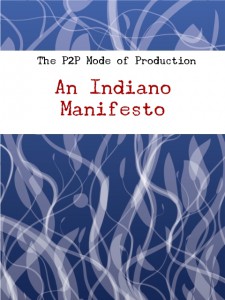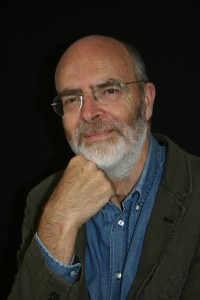
Published under the Public Domain, freely downloadable in HTML, epub or PDF, “The P2P Mode of Production: An Indiano Manifesto” is the first collective Indiano work translated into English.
This document is a call to action, based on Las Indias’ analysis that the reduction of the optimal scale of production is the root of the current crisis — in Spain particularly, but also worldwide. This is a grave threat for huge corporations (and to a lesser extent, national governments), but very promising for small enterprises. That’s because the core of the P2P mode of production is a “knowledge commons” available to all. Abundant information on every topic imaginable, but especially on small-scale production, means that local producers can freely choose the most effective, efficient and accessible processes, without the shackles of intellectual property. This will lead to a blossoming of local enterprise. And that’s where you can take action.
 There’s a lot more to it — see for yourself!
There’s a lot more to it — see for yourself!
The translation and formatting of this book is US$1000 worth of work. The content is available for free, as a webpage, epub or PDF, but please consider donating one half of one percent of that — or as much or as little as seems right to you. This will go a long way toward encouraging future translations of the works of Las Indias.
Phi Beta Iota: Michel Bauwens is one of the iconic figures of the transitional period from past to future, from Industrial Era stove-pipes and greed, to Information Era open source everything and sharing to create collaborative economies.
See Also:
Collaborative Economy Coalition
Tom Atlee, Empowering Public Wisdom: A Practical Vision of Citizen-Led Politics (Evolver, 2012)
Michel Bauwens, Report: A Synthetic Overview of the Collaborative Economy (Orange Labs and P2P Foundation, 2012)
Robert Steele, THE OPEN SOURCE EVERYTHING MANIFESTO: Transparency, Truth & Truth (Evolver, 2012)




